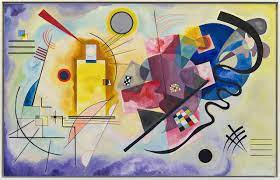by Dwight Furrow
 In debates about hedonism and the role of pleasure in life, we too often associate pleasure with passive consumption and then complain that a life devoted to passive consumption is unproductive and unserious. But this ignores the fact that the most enduring and life-sustaining pleasures are those in which we find joy in our activities and the exercise of skills and capacities. Most people find the skillful exercise of an ability to be intensely rewarding. Athletes train, musicians practice, and scholars study not only because such activities lead to beneficial outcomes but because the activity itself is satisfying.
In debates about hedonism and the role of pleasure in life, we too often associate pleasure with passive consumption and then complain that a life devoted to passive consumption is unproductive and unserious. But this ignores the fact that the most enduring and life-sustaining pleasures are those in which we find joy in our activities and the exercise of skills and capacities. Most people find the skillful exercise of an ability to be intensely rewarding. Athletes train, musicians practice, and scholars study not only because such activities lead to beneficial outcomes but because the activity itself is satisfying.
The idea that there is a distinctive and uniquely rewarding form of pleasure generated by skillful activity is not a new idea. Aristotle argued that pleasure is the product of unimpeded activity. Since skills diminish impediments to our activity it follows that we take pleasure in skillful activity. More recently, in a research project that has now spanned several decades, the Hungarian/American psychologist Mihalyi Csikszentmihalyi has understood the pleasure we take in skillful activity in terms of the concept of “flow,” a state of intense immersion in and focus on a task which is intrinsically rewarding.
The pleasure we experience from skillful activity is most often associated with a performance. It is less often associated with skillful perception. However, it isn’t obvious why the exercise of perceptual skills is not similarly rewarding. If so, that has implications for how we understand the nature of aesthetic experience. When we experience pleasure from viewing a painting, are the properties of the painting generating pleasure or are we taking pleasure in our own skill at apprehending those properties? If it is the latter, the capacity of a work of art to engage the skills of the viewer may be an element in evaluating a work. One enduring question in aesthetics is why we enjoy works that are grotesque, painful to experience, or just plain difficult to understand. If part of aesthetic pleasure is the satisfaction we experience in deploying perceptual skills, that question can be answered by the way in which the work engages perceptual or interpretive skills. Read more »
